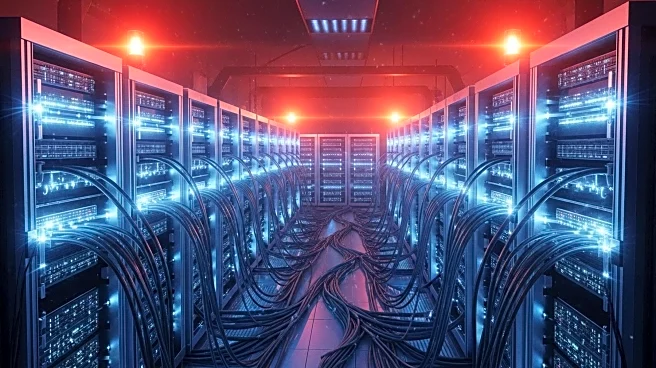What's Happening?
South Korea is scrambling to restore services after a fire at its national data center in Daejeon disrupted critical online government services. The fire, suspected to have started with a lithium-ion battery explosion, damaged servers and forced the shutdown of hundreds of others. The blaze led to a 'thermal runaway,' producing extreme heat that hindered firefighting efforts. Prime Minister Kim Min-seok apologized for the inconvenience and announced that tax payment deadlines would be delayed. The restoration of services is ongoing, with no clear timeline for completion.
Why It's Important?
The incident highlights the risks associated with centralized data storage and the reliance on lithium-ion batteries in critical infrastructure. The disruption affects various government functions, including legal databases and postal services, demonstrating the potential impact on public administration and citizen services. The event may lead to increased scrutiny of energy solutions and the implementation of more robust safety measures in data centers.
What's Next?
The government is actively working to restore services, with efforts focused on extracting nearly 400 battery packs from the building as a safety measure. The cause of the fire is under investigation, and LG Energy Solution has declined to comment. The incident may prompt a reevaluation of data center safety protocols and the use of lithium-ion batteries in critical infrastructure.
Beyond the Headlines
The fire may lead to a broader discussion on the safety and reliability of energy solutions used in data centers. It could result in policy changes aimed at enhancing disaster recovery plans and decentralizing data storage to mitigate risks. The event also underscores the importance of having contingency plans for critical government services.









